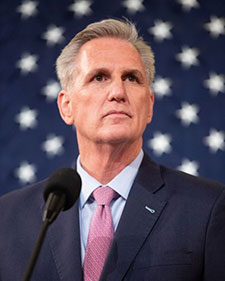

The Timeline highlights significant developments in the history of financial regulation against U.S. and world events. Choose a different decade below, or scroll down to discover more.


On implementation a year after approval in June 2019, Reg BI requires that broker dealers must act in the best interest of their clients. Going beyond formerly applied suitability standards, “Reg BI” sets new standards of conduct for broker dealers with four obligations regarding disclosure, care, conflict of interest, and compliance.
In a case with the potential to moderate the effects of the Kokesh decision, the Supreme Court finds that the SEC can seek disgorgement as an equitable remedy if it meets certain principles including: returning fines to investors, excluding joint and several penalties, and deducting legitimate expenses from the disgorgement.

In January retail investors in Gamestop and other “meme stocks” take on Wall Street, creating large fluctuations in market value. Robinhood, one of the so-called commission-free brokerages that promoted meme stocks, which were valued not by economic performance but by social media promotion, later settles with FINRA for not revealing the payment for order flow arrangements by which it was compensated.
In the wake of new attention to global warming, the Black Lives Matter movement, and other trends linking cultural shifts with financial markets, the SEC offers new guidance to allow shareholders to press directors on matters increasingly characterized as “Environmental, Social and Governance” (ESG) issues.

In order to get ahead of two trends rapidly transforming securities markets and creating new risks for investors, the SEC doubles the size of its Crypto Assets and Cyber Unit. The newly renamed entity was founded with the Division of Enforcement as the Cyber Unit in 2017.
On December 14, the Commission proposes four measures to update and revitalize the structure and function of the securities markets. The most sweeping of these was “Regulation Best Execution” which would have been the first formal SEC rule regarding best execution. Ultimately, under industry opposition, only two of the less sweeping rules regarding order execution disclosure and tick size are adopted.

In a testament to the effectiveness of the Whistleblower Program established by Congress in the wake of the Madoff revelations, in May the SEC makes its largest ever award. The $279 million payout comes from a fund supplied by earlier monetary sanctions.
In an effort to employ existing securities laws to regulate the cryptocurrency market, which has harmed many investors after an industry shakeout, the SEC sues leading crypto exchanges Coinbase and Binance for operating as unregistered securities exchanges.
In a setback for the SEC, a US District Court, in the Ripple Labs, decision holds that cryptocurrencies are not necessarily securities—that whether they meet the Howey test depends on how they are sold. A month later, the DC Circuit finds that the SEC did not adequately explain its reasoning for rejecting an application to create the Greyscale Bitcoin ETF.
After years of mounting threats to public companies, the SEC adopts new rules requiring companies to disclose material information on cyberattacks within four days and to report on cyber risk management, strategy, and governance efforts annually.

After rejecting more than 20 similar applications in six years, the SEC approves the creation of exchange traded products (ETPs) that directly hold the cryptocurrency bitcoin. This landmark move, the SEC Chairman explained, resulted from new circumstances following the DC Circuit’s Greyscale decision.
The SEC adopts rules for the Special Purpose Acquisition Companies (SPACs) devised as an alternative to IPO rules. The measures, created in response to the growth and collapse of many SPACs earlier in the decade, call for disclosure of conflicts, sponsor compensation, and target company information.
In a setback for the SEC, the Fifth Circuit court of appeals strikes down Private Fund Adviser Rules adopted by the SEC in August 2023. The Court finds that by imposing additional disclosure obligations on non-public private fund advisers the SEC exceeded the authority established by the Administrative Procedures Act.
The Supreme Court upholds a lower court ruling that it is unconstitutional for the SEC and other federal agencies to employ Administrative Law Judges (ALJs) in matters where defendants merit a jury trial. Although the decision struck a formal blow to the system of administrative law, the SEC had been filing most contested cases in federal courts since the 2018 Lucia decision.